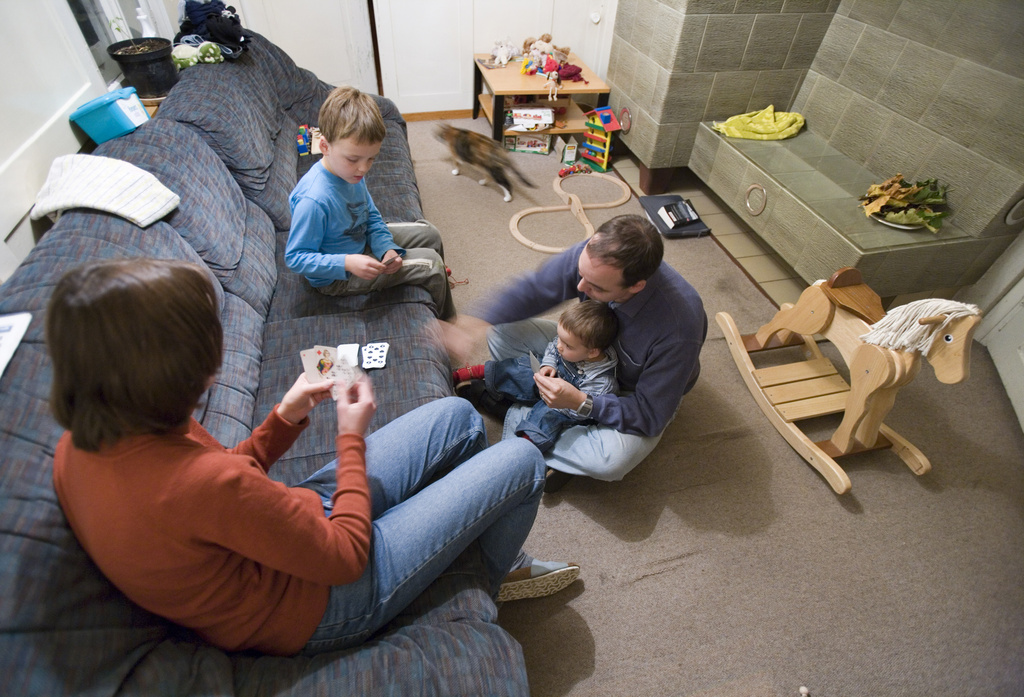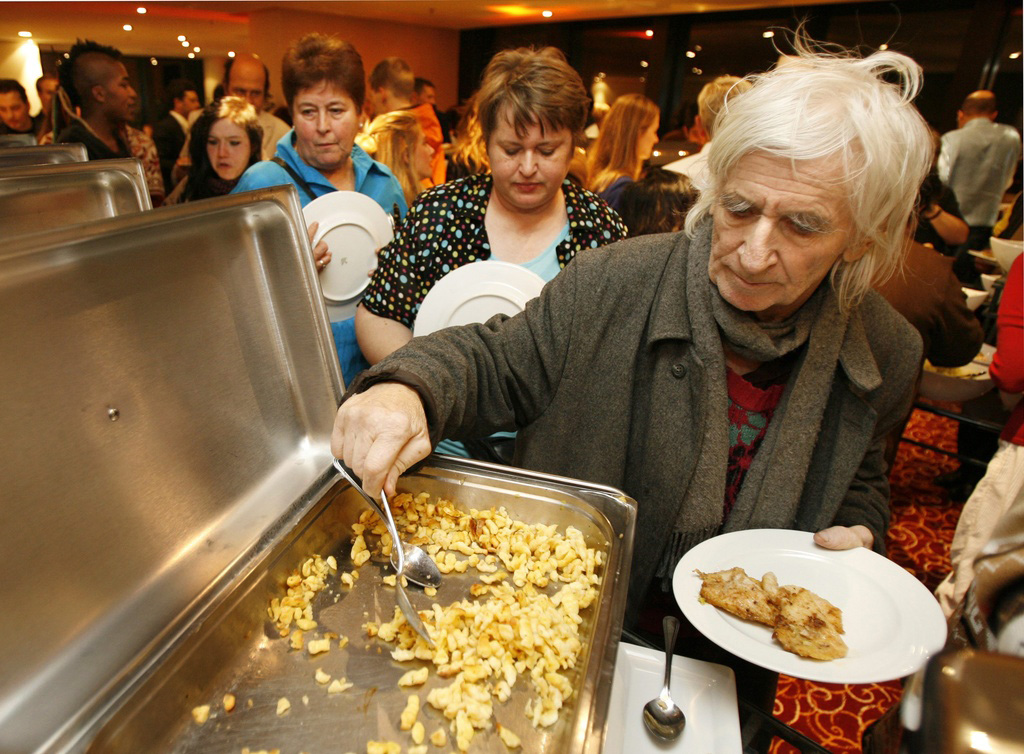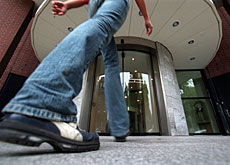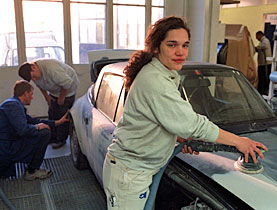Middle class struggle to stay afloat, says study

Four out of ten middle-class families in Switzerland find it hard to make ends meet every month and are unable to save, a survey has found.
And this figure rises to half among lower middle-class families. Yet the vast majority of people questioned are upbeat about the future despite the economic crisis, the Beobachter magazine reported on Thursday.
According to the survey conducted by the gfs.bern institute, 85 per cent of families believe the economic situation will tick along at the present level for the next five years. Only one family in ten believes things will get worse.
But behind this optimism lies another reality.
Some 38 per cent of middle-class families, which represent 60 per cent of the Swiss population, are stretched financially.
The German-language magazine defines a middle-class family as one whose head of household earns between SFr2,450-5,250 ($3,238-6,940) per head.
“Part of the Swiss middle class has difficulties since expenses, including things like health insurance, have risen faster than salaries over recent years,” Dominique Joye, a sociologist from Lausanne University, told swissinfo.ch.
Daniel Lampart, head economist with the Trade Union Federation, agrees that a growing number of middle class families “only just make ends meet”.
Pressures
According to Beobachter, over the past 15 years average wages have risen by 12 per cent, while rents have gone up by 16 per cent – even more in cities. And following recent hikes in health insurance, monthly premiums can average SFr1,500 and more for a family of four.
Critics argue the tax system is also no longer appropriate for families.
A study by St Gallen University last year found that the higher one parent’s income, the less profitable the second parent’s income can become, as childcare costs and taxes eat disproportionately into the second paycheck.
The government says tax relief for middle-class families is a priority and last May proposed reforms to provide SFr600 million in direct tax relief to families with children.
Children’s future
In the Beobachter poll families under financial pressure said they would be more willing to give up the idea of having another child rather than their car.
More than 50 per cent said it would be “very hard” and 29 per cent “quite hard” to live without a vehicle, while 70 per cent said they could easily do without another child if their financial situation got worse.
Despite financial hardships, their children’s future remained a priority. Around 49 per cent said they would not cancel their offspring’s private tuition, 47 per cent said music lessons were important and 33 per cent said a computer was essential in their child’s bedroom.
An annual skiing holiday or trip abroad was also important for middle-class Swiss families. Abandoning holidays would be “very difficult” for 16 per cent of families and “rather difficult” for 37 per cent.
But there is a “growing gap” between middle-class aspirations and what certain categories of people are actually experiencing, says Joye.
Squeezed
The biggest concerns about the financial future concerned job security and the influx of immigrant workers, the survey found.
Some 31 per cent said they had “serious” worries about their income being affected by foreigners taking jobs.
While appearing silent, the “stressed” middle class is actually exerting its frustrations through votes like the “xenophobic” minaret ban and initiatives against the wealthy, like the bonus issue, which political parties can easily instrumentalise, said Geneva University sociology professor Sandro Cattacin.
“The Swiss middle class, as in other European countries, is being squeezed from above and below. The poor are getting richer and the rich are getting even richer. The middle class is a very unpleasant place to be, as there are lots of anxieties about losing out socially,” said Cattacin.
Simon Bradley, swissinfo.ch
9.3% of Swiss children live in relative poverty, according to the OECD.
12% of pensioners need income support to make ends meet with up to a third of them – 45,000 – still living in poverty despite this assistance.
10% of single parents are “working poor”. Their low pay means they remain in relative poverty despite working a regular working week.
In 2006, 18% of single parents received social benefits.
At the end of March the government published a landmark report on poverty in Switzerland. The document calls for equal opportunities in education, improved re-integration into the job market and measures to combat poverty among families.
The government also recommends that the cantonal and local authorities grant additional welfare payments to families in need.
The Catholic church charity Caritas estimated earlier this year that up to 900,000 people – an estimated 12 per cent of the Swiss population – are in need of social welfare. However the figure was disputed by other organisations and institutions.
Caritas this year presented measures to halve poverty in Switzerland by 2020, as part of the European Year for combating poverty and social exclusion.

In compliance with the JTI standards
More: SWI swissinfo.ch certified by the Journalism Trust Initiative












You can find an overview of ongoing debates with our journalists here . Please join us!
If you want to start a conversation about a topic raised in this article or want to report factual errors, email us at english@swissinfo.ch.